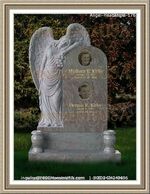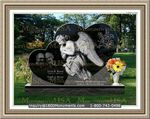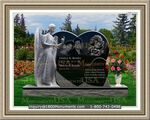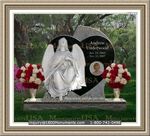|
Basic Details To Notice When Dealing With Jewish Funeral Traditions
According to Jewish funeral traditions, the deceased should never be left unattended. A watchmen, or "Shomer" stays with the body from death until the funeral and burial. Usually the family will stay with the deceased as well. The first person to call upon a death is the rabbi, who will set the time of the funeral. Funerals are held in the synagogue or temple, however many modern Jewish families are opting for graveside services only.
Jews do not believe in viewing the body after death; it is disrespectful because the deceased person cannot look back at you. Therefore, Jewish funerals are usually closed casket.
Unless it is required by local laws, Jews do not take part in the embalming process, which is used for sanitation and temporary preservation of the body. Instead, the sacred society, called the Chevra Kadisha, prepares the body for burial. They perform the Taharah, a type of Jewish purification.
The body is first ritually bathed and then dressed in the Tachrichim, or shrouds, the traditional burial garment. It is a simple white garment that contains no pockets. This symbolizes the fact that the deceased takes nothing with them when they depart this world and that God will not judge on material possessions but rather their deeds and merits.
While families choose their own caskets, Jewish tradition calls for unadorned caskets made of wood that contain no metal. The family also decides on funeral details, but there are typically no floral arrangements as this is seen as unnecessary and frivolous.
The funeral typically takes between 20 and 30 minutes in which the rabbi with conduct a reading of the Psalms, other chosen Scripture readings, and a reading of the eulogy. Prior to or following the service, family and other mourners conduct the K'riah, or rendering of the garment, where they tear their clothes or place a black ribbon on their clothes. This shows others that they are in mourning for the deceased. These Jewish funeral traditions have been somewhat modified over time, but are generally followed by most Jews.
|
|



























